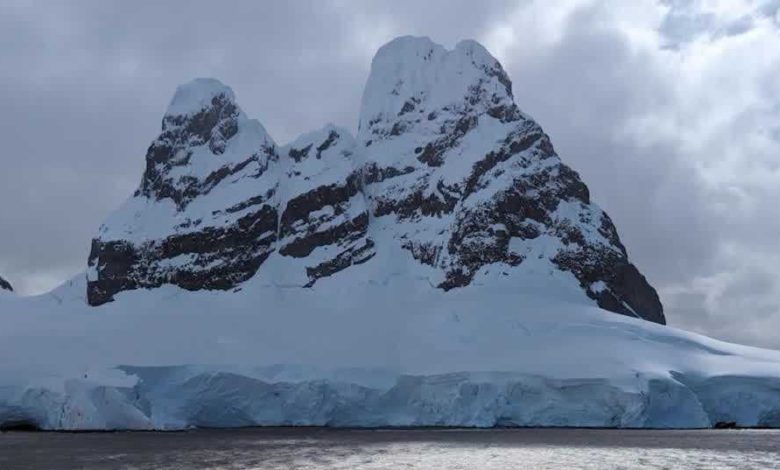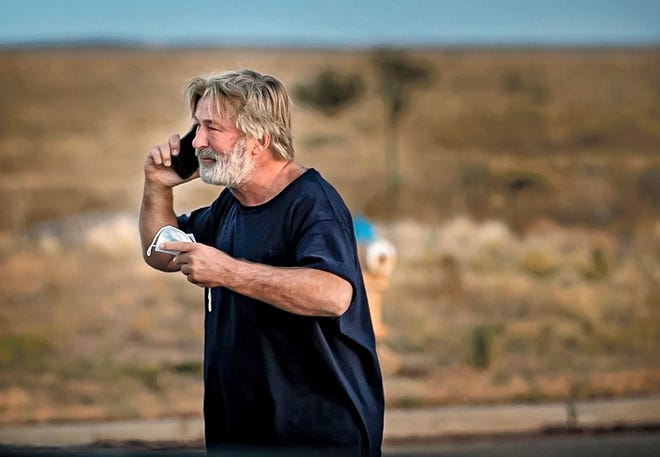

Sister station WMTW meteorologist Sarah Long traveled to Antarctica in January to fulfill a decadeslong dream. The western region of Antarctica is warming at five times the global average. That warming will continue to impact sea ice, the ecology of the region and the ocean circulations around the globe."Polar regions in the Arctic and the Antarctic are fragile and they are critical to the circulation and overall ecology of marine life on our planet," Dr. Janet Duffy-Anderson said.Duffy-Anderson is the Chief Scientific Officer at the Gulf of Maine Research Institute. She spoke about the impacts of climate change on our polar regions and what those changes mean in Maine, where the gulf has recorded the two warmest years on record in 2021 and 2022."Changes that happen there, even though it's remote, have direct impacts on our neighborhoods, on our regional systems, and sort of how we position ourselves moving forward," Duffy-Anderson said.The poles are warming faster as sea ice melts and is no longer there to refract sunlight."If you think about it – in the poles in the wintertime, sea ice forms and it covers open water, which is relatively dark, and ice itself is light, it's white. And so typically it refracts that radio radiation up to, I think, 80 or 85%," she said.Without the typical sea ice in the Arctic and Antarctica, the ocean surface is now absorbing more of the heat. That ultimately affects how the currents around the globe are moving from one pole to the other.Antarctic sea ice also keeps the adjoining glaciers bottled up over land. As the sea ice melts that gate is opened for the ice to work its way into the sea, impacting sea levels across the globe.The sea ice is also a crucial part of the ecology of the Antarctic Peninsula. Underneath the ice, krill feed on algae. That krill is crucial to the diets of the diverse marine life including seals, penguins and whales.The warming of our poles will continue to impact lives in the Gulf of Maine.There's a feature called global ocean circulation that the Antarctic Peninsula and the Antarctic continent itself are very important to.That current is disrupted and amplified by warming in the Arctic Ocean. It changes circulation patterns globally. Makes it warmer and also accelerates the speed of those flows.The interconnectedness is a reminder that we are a global species, impacting and ultimately impacted by those regions that few get to visit."The changes that we put in place now in the next three to five years can change the trajectory of that. We're actually in a really good place in order to mitigate and adapt to some of these changes that are coming for the Gulf of Maine and around the world," Duffy-Anderson said.
Sister station WMTW meteorologist Sarah Long traveled to Antarctica in January to fulfill a decadeslong dream.
The western region of Antarctica is warming at five times the global average. That warming will continue to impact sea ice, the ecology of the region and the ocean circulations around the globe.
"Polar regions in the Arctic and the Antarctic are fragile and they are critical to the circulation and overall ecology of marine life on our planet," Dr. Janet Duffy-Anderson said.
Duffy-Anderson is the Chief Scientific Officer at the Gulf of Maine Research Institute. She spoke about the impacts of climate change on our polar regions and what those changes mean in Maine, where the gulf has recorded the two warmest years on record in 2021 and 2022.
"Changes that happen there, even though it's remote, have direct impacts on our neighborhoods, on our regional systems, and sort of how we position ourselves moving forward," Duffy-Anderson said.
The poles are warming faster as sea ice melts and is no longer there to refract sunlight.
"If you think about it – in the poles in the wintertime, sea ice forms and it covers open water, which is relatively dark, and ice itself is light, it's white. And so typically it refracts that radio radiation up to, I think, 80 or 85%," she said.
Without the typical sea ice in the Arctic and Antarctica, the ocean surface is now absorbing more of the heat. That ultimately affects how the currents around the globe are moving from one pole to the other.
Antarctic sea ice also keeps the adjoining glaciers bottled up over land. As the sea ice melts that gate is opened for the ice to work its way into the sea, impacting sea levels across the globe.
The sea ice is also a crucial part of the ecology of the Antarctic Peninsula. Underneath the ice, krill feed on algae. That krill is crucial to the diets of the diverse marine life including seals, penguins and whales.
The warming of our poles will continue to impact lives in the Gulf of Maine.
There's a feature called global ocean circulation that the Antarctic Peninsula and the Antarctic continent itself are very important to.
That current is disrupted and amplified by warming in the Arctic Ocean. It changes circulation patterns globally. Makes it warmer and also accelerates the speed of those flows.
The interconnectedness is a reminder that we are a global species, impacting and ultimately impacted by those regions that few get to visit.
"The changes that we put in place now in the next three to five years can change the trajectory of that. We're actually in a really good place in order to mitigate and adapt to some of these changes that are coming for the Gulf of Maine and around the world," Duffy-Anderson said.
Source link









